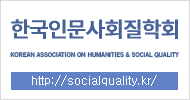ISSN : 2586-2987(Print)
ISSN : (Online)
ISSN : (Online)
Korean Journal of Social Quality Vol.4 No.1 pp.55-84
DOI : https://doi.org/10.29398/KJSQ.2020.4.1.55
DOI : https://doi.org/10.29398/KJSQ.2020.4.1.55
A Research on the Methods for Advancement of Long-Term Care Workforce in Korea through Cases in Germany : Focusing on the Development in the Occupational System of Caregivers and in Candidate Training in Germany
Abstract
In Germany, each state has their own education and occupation systems, however, those wanting to work in geriatric care related professions have to be between the ages of 17 and 50 and meet the minimum education criteria. These occupations are divided into the followings: caregiver assistants, geriatric care assistants, geriatric caregivers and care specialists. Although each occupation has different minimum education level requirements and their corresponding wages vary, job promotions are guaranteed through more field experience and further education. In 2017, the “Act on Geriatric Care Profession” was enacted, and individual curricula for care nurses, health/patient care nurses and child patient care nurses were integrated into a single curriculum. As a result, a three-year integrated education program will begin in 2020, allowing those completing it in 2023 to use the title “Care Specialist.” In contrast to the situation in Germany, in Korea, anyone can become caregivers by obtaining a certificate and there are no restrictions or qualification requirements such as age or academic background. The only requirement is completing a designated training course at a chosen educational institution. Due to the lack of requirements and qualifications needed to be a caregiver in Korea and also because of wide gaps in wages and education levels, it is difficult for caregivers to have pride in their career. The study analyzes the development of Germany’s training system for prospect manpower for geriatric care and explores how their principles can be applied to the system in Korea. In addition, the study makes some suggestions for the caregiver training
독일 사례를 통해 본 한국 장기요양보호인력 선진화 방안 : 독일 수발인력 직종체계와 양성교육의 제도변화를 중심으로
초록
독일은 주마다 교육제도와 직업 체계에 차이가 있지만, 노인수발 관련 직업에 종사하려면 최고 연령기준(17세)과 최저 연령기준(45세∼50세)을 충족시켜야 하고 일정 수준의 교육을 이수해야 한다. 노인수발 직업군에는 수발보조인력(Pflegehilfskraft), 노인수발보조사(Altenpflegehelfer), 노인수발사(Altenpflegerln), 전문수발사(Pflegefachmann) 등이 포함된다. 저마다 교육 수준과 처우도 다르지만, 현장 경력과 교육을 통한 직업상승의 기회가 보장된다. 2017년 “노인수발(요양) 직업에 관한 법”의 제정으로 요양보호사, 보건위생 및 환자간호사, 어린이환자 간호사의 교육과정을 통합하였다. 이에 2020년부터 3년제 통합교육이 시작되어 2023년부터는 이들을 ‘전문수발사’라 칭할 예정이다. 한국의 요양보호사는 초창기 독일의 노인요양보호사처럼 나이나 학력 등 자격요건에 제한을 두지 않고 지정 교육기관에서 소정의 교육만 이수하면 자격증을 취득할 수 있다. 따라서 전문성을 인정받는 ‘간호’와 다르고 자격요건이나 처우도 낮은 상황이어서 요양보호사로서의 직업적 자긍심을 갖기 어렵다. 본 연구는 독일의 노인수발(요양) 인력 양성 제도 변화를 분석하여 전문화와 다양화라는 두 가지 방향이 한국 장기요양보호 인력 양성제도에 어떤 정책적 시사점과 방안들이 있는지 제안하였다.









